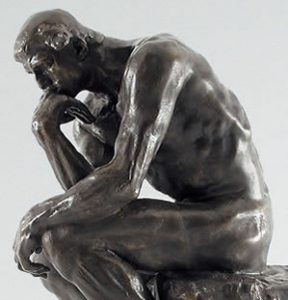 Inevitably, in any discussion with those critical of atheism, you’ll hear “You can’t prove there’s no God, therefore atheism is not logically supportable.”
Inevitably, in any discussion with those critical of atheism, you’ll hear “You can’t prove there’s no God, therefore atheism is not logically supportable.”
Here’s the counter: There’s this thought experiment we’ve been conducting for the past three centuries or so, the thought experiment of “What if everything works by completely natural laws and forces, with no capricious supernatural superbeings involved?”
It doesn’t matter whether or not the supernatural superbeings exist! We just decided to see what we could come up with if we assumed they didn’t. It was a trial run regarding a certain way of thinking.
That thought experiment, science, has paid off in practically everything you see around you. Not one object in my modern house, no part of our cellphones or computers or cars, nothing in modern medicine, depends on belief in gods for its existence, and in fact, could not have been created (and demonstrably was not created) by people operating solely on faith. It turns out that the thought experiment of science returned massive benefits, things never before seen, or possible, in the thousands of years before we tried it.
Atheism is this same type of thought experiment, a trial run of “IF WE ASSUME no gods exist … How would society look? How would government work? What would morality be like? How would we relate to each other? And … is it possible that by assuming this we might see the same massive benefits socially as we got scientifically?”
You don’t have to prove there’s no God to be an atheist. Atheism is a thought experiment, and every atheist — every person! — is perfectly justified in performing it. The goal of this thought experiment is not rock-solid proof of the non-existence of gods. In fact, that question is virtually irrelevant. The goal is to see what social and cultural benefits we can obtain from postulating that we live in a world devoid of mystical forces. A world where the things HUMANS do and think is the main deciding factor in eventual outcomes.
Just as it was with science, the result of this experiment might be off the charts of anything we’ve seen until now.
